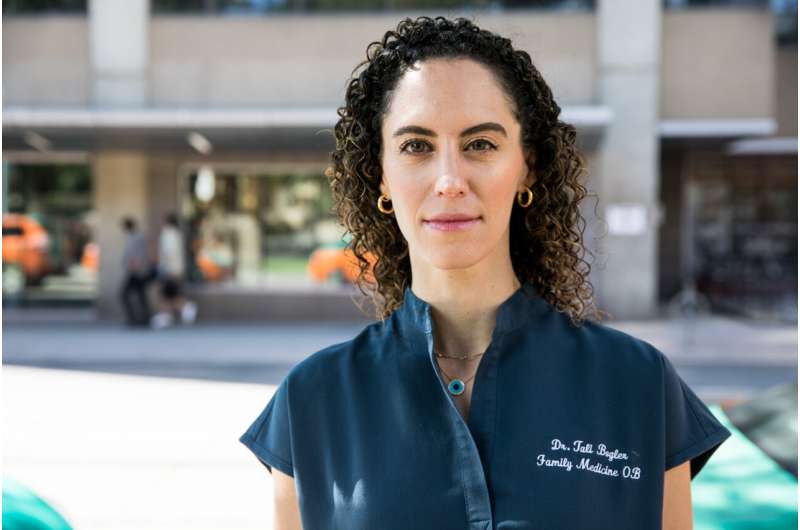Better mental health supports needed for pregnant individuals during the pandemic, says study

Physician-researchers say more mental health supports are needed for pregnant individuals, after a survey found nearly three-quarters of individuals who had been pregnant during the pandemic reported moderate to high levels of distress, and one in five experienced depressive symptoms.
The researchers, led by clinicians at Unity Health Toronto, surveyed nearly 1,500 participants online—87 percent of whom were Canadian—who had been pregnant during the COVID-19 pandemic. Nearly 69 percent of respondents reported moderate to high levels of distress and 20 percent had depressive symptoms.
"The high levels of distress highlight the importance of considering mental health centrally in supports for this population," said Dr. Tali Bogler, study lead author and family physician and chair of family medicine obstetrics at St. Michael's Hospital of Unity Health Toronto. "The findings also highlight the overall impact the pandemic has had on families in general and the downstream impact this will have."
A limitation of the study was that it did not have comparable data of distress levels among pregnant people prior to the pandemic. However, a population-based survey conducted in Japan before the pandemic found 28 to 32 percent of pregnant people reported distress.
Researchers also sought to learn more about what the common sources of concern were for expectant parents during the pandemic. Participants were provided a list of 27 concerns and asked to indicate their level of concern for each issue.
The top five concerns during pregnancy included hospital policies regarding support persons in labor; not being able to introduce their baby to loved ones; getting sick from COVID-19 while pregnant; not being able to rely on family or friends after labor for support; and conflicting medical information on COVID-19 in pregnancy and newborns, especially early in the pandemic.
There were differences in the concerns of first-time and second/third-time parents. First-time parents were more concerned about the cancelation of in-person prenatal classes and hospital tours, whereas second/third-time parents were more concerned about transmission of COVID-19 from older children in the home.
The authors say family physicians are well placed to support perinatal mental health, and can engage in screening practices and offer appropriate treatment, such as counseling, public health nursing, and psychiatric appointments. They also recommend hospitals better utilize technology to help address parents' concerns by arranging more virtual check-ins and hospital tours and provide more online resources with evidence-based information on COVID-19 relevant to expectant and new parents.
"Clinicians and hospital administrators need to explore innovative ways to increase perinatal support," said Dr. Bogler, who is also one of the leads of the Pandemic Pregnancy Guide, a virtual platform that provides medical information on pregnancy and COVID-19 and helps form a community for expecting parents during the pandemic.
More information: The Pandemic Pregnancy Guide is available at drive.google.com/file/d/1b4dNi … AuGBqYdT0sb-zy6/view




















